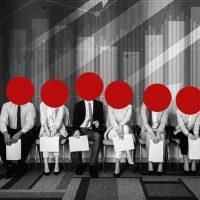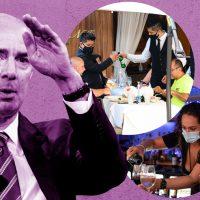The leisure and hospitality industry led employment gains in September with 318,000 jobs added to the economy, trouncing the industry’s August performance of 174,000 jobs.
Food and beverage establishments accounted for more than half the industry’s growth last month, with 200,000 jobs returning last month.
The U.S. economy added 661,000 jobs in September overall, according to Labor Department figures released Friday, and the unemployment rate fell to 7.9 percent from 8.4 percent in August.
But the overall rate of economic recovery from the pandemic is slowing. More than 700,000 fewer jobs added in September than in August, due in part to the loss of government positions as schools delayed bringing back their workforce and temporary census hiring reversed course.
Read more



The Labor Department’s latest report is the last one to be released before the presidential election, adding volatility to a market rattled by President Trump’s coronavirus diagnosis.
“There is a tremendous amount of churn in this job market,” said Mike Fratantoni, chief economist of the Mortgage Bankers Association. “The pace of layoffs remains high, and even though many employees are being rehired, net employment gains are slowing.”
Labor churn was evident in leisure and hospitality, which despite leading job growth witnessed large corporate layoffs. For example, Disney announced this week it would lay off 28,000 employees following earlier furloughs.
While the private sector added a robust 877,000 jobs last month, total employment remains 7 percent below its February level with the economy providing 10.5 million fewer jobs than it did before the start of the pandemic.
Real estate, rental and leasing added 20,000 jobs last month, on par with August, while construction grew by 26,000 jobs, beating its August performance by 10,000 jobs.
“For the housing market, record-low mortgage rates and an improving job market should support strong demand for the rest of the year,” said Fratantoni. “However, further slowdowns in hiring could cause some households to delay decisions to buy.”
